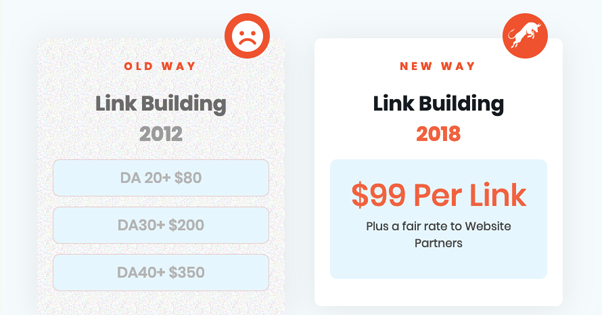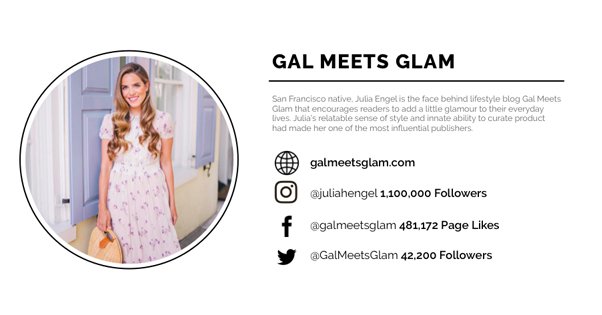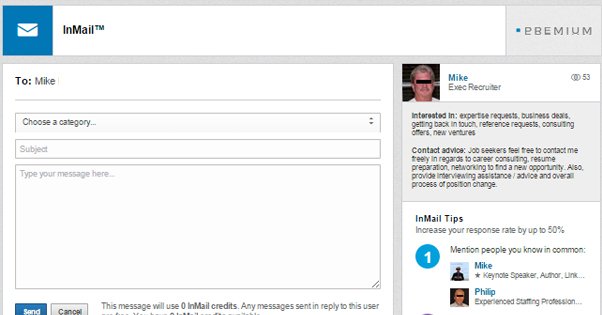By now you’re likely quite familiar with the basic techniques involved in guest posting, at least if you’ve read this blog for any length of time. I’ve even brought up some related techniques, like press release marketing. Now it’s time to bring up another: blogger outreach.
Blogger Outreach: What’s the Difference?
What is blogger outreach, and how does it differ from guest posting? Let’s dig in.
Guest posting, as you might understand, is the technique of creating content for a site you don’t own. The content you create represents you, because it has your byline on it and, usually, a credit back to your social profiles or your website. You often include a link to your own content organically, so the guest post has the potential to refer traffic as well as reputation. In some cases, you even get a followed link, to get some of that delicious link juice as well.
Blogger outreach offloads some of the work, while giving you a bit more direct benefit. In a way, it’s closer to press release marketing.
The basic concept is simple. You’re reaching out to bloggers with the goal of getting them to write about you. Maybe they cover you specifically, as a blogger or company owner profile piece. Maybe they cover a new product or service you’re launching. Maybe they write an industry top-list and promise to include you at the top of the list. Maybe write a history of your company. There are a lot of different types of coverage you can get.
The Benefits of Blogger Outreach
There are some very tangible benefits to blogger outreach in place of guest posting. The first and foremost among them is simply the ease of use of the technique. You don’t have to be the one writing – or hiring a ghostwriter to write – the high quality content. The blogger you’re talking to will do the legwork for you, though they may want to interview you or otherwise harvest specific information from you.
Blogger outreach also tends to get you more qualified leads than mere guest posting. A guest post has your byline on someone else’s site; you get some inherent trust for being on the site, but long-time readers might wonder who you are and may distrust you inherently, at least until you prove yourself. With blogger outreach, the blogger is the one recommending you; it comes across as a more trustworthy recommendation.
Blogger outreach also has the potential to get you brand recognition. People who might otherwise ignore your posts or your brand will take more notice when the recommendation comes from someone they know.
Plus, of course, there’s the explicit mention. One of the hardest parts of guest blogging is getting your link included in a way that’s natural and not artificial. No one wants an advertorial link in their guest posts, they want a good link to a blog post. If you don’t have the right kind of link, or if the guest host just doesn’t want links at all, you’ll have a hard time getting more out of it than your name on a new domain. With blogger outreach, you’re getting a more explicit recommendation, as well as potentially even a direct link to a landing page, optimized for those specific visitors.
The Drawbacks of Blogger Outreach
There are two major drawbacks to blogger outreach as opposed to guest posting. For one thing, you don’t get a byline. You aren’t creating the content, so your name doesn’t go on it. Sure, you get that explicit link, but you don’t get the byline, which means you can’t leverage it as a credit for future guest posts. Since part of the value of guest posting is in long-term growth, it’s less advantageous from an SEO perspective.
Blogger outreach also, to put it bluntly, is an exchange of services. The vast majority of the time, you have to pay for what you’re getting. You might pay explicitly, in which case it becomes a sponsored post. You might make a financial contribution or pay under the table, which can be an issue if Google discovers it but is often done regardless. You may pay in terms of services, by offering a subscription or free product to the blogger. Or you might pay in like for like, where you offer a similar explicit recommendation of the blogger and their services on your site.
Sometimes, this kind of payment simply isn’t in the cards. Either they’re too expensive, or you don’t want to recommend them, or you just don’t want to pay. When this happens, you’re just out of luck; most bloggers won’t take kindly to the expectation that they write a favorable post about you for no reason at all. On the other hand, it’s fairly trivial to hand over a trial account or free product, so it’s not that hard to pull off.
Blogger Outreach Vs. Influencer Marketing
If you’re thinking “hey, this sounds a lot like influencer marketing“, you’re not wrong. Influencer marketing is, in my mind, the larger industry of which blogger outreach is a part. Influencer marketing can include reaching out to bloggers, but it also includes commenting on blogger posts, engaging with influencers on social media, and occasionally even engaging with influencers who aren’t bloggers at all. There are, believe it or not, plenty of people who are completely successful on a platform like Instagram and don’t maintain a blog at all.
Many of the techniques you use in influencer marketing are the same as those you use in blogger outreach. While blogger outreach tends to be fairly explicit, influencer marketing can be more subtle. You take the time and lay the groundwork by engaging with the blogger or influencer in their own channels before you approach them, in the hopes that they’ve noticed you, investigated your products, and already have an interest. The better the groundwork you lay – and the more inherent value your company has to the blogger – the cheaper your blogger outreach will end up being.
Which Should You Choose?
If you’re a long-time reader of my blogs, you already know what I’m going to say. Never choose one or the other! Blogger outreach and guest posting are two facets of the same crystal. They aren’t mutually exclusive. In fact, one can lead to the other.
Blogger outreach is good for getting some very quick links and coverage, especially if you’re willing to pay decently for it. Don’t stray too far into “sponsored post” territory, though; that’s another technique entirely. I like blogger outreach for those mid-level sites that aren’t necessarily worth the time it takes to write a full post, but which still have enough value for a link to be worthwhile.
Meanwhile, guest blogging is better for a long-term campaign of growth. You can use it to build relationships and grow your audience similar to compound interest. The more you grow, the faster you can continue to grow.
When I say one can lead to the other, I mean that blogger outreach can often be a good way to get your foot in the door with guest posting. When you engage with a blogger on their home turf, and you offer your product for them to cover as they will, and they publish that coverage, it’s a good start.
You can then, after a few weeks or a few months, reach out to them again. Since they like you and looked on you favorably, they may be more open to you creating and publishing a guest post for their site. You don’t have to scrounge around for the one editor out of a dozen that will give you the time of day; you already have a contact within the organization.
Tips for Blogger Outreach Success
So if you’re going to embark on a campaign of blogger outreach, you need to have some idea of what you’re doing.
First of all, you need to pick the sites or bloggers you want to target. The highest of the high tier sites aren’t likely to be good options, unfortunately. While you can eventually guest post on Forbes, you’re not going to be able to reach out with some blogger outreach unless you’re really willing to compensate. Even then, Forbes and other high-tier publications don’t tend to publish sponsored content unless you’re a global brand, so it’s a very narrow line.
Conversely, since you’re paying with blogger outreach, the low-tier sites that can be decent targets for low-effort guest posts aren’t really worth the expense for blogger outreach. How much do you want to network with someone whose site only gets a few hundreds hits a month? How much are you willing to pay for them to cover you? I’m guessing not a whole lot.
Like goldilocks, you need to find the sweet spot in the middle where sites aren’t too hot or too cold for you to reach.
When you have a target site in mind, embark on some influencer marketing techniques. Figure out who the editor or writer most likely to accept you is, and start engaging with them. You can add them on LinkedIn, though that’s not always a great move. You can also follow them on Twitter, and see if they have a public Facebook page you can follow.
Monitor when your chosen author or editor publishes content and engage with that content. Try to be among the first to comment, and always strive to leave a good, high quality comment. None of those “First!” or “Great article!” comments here. Pick a point they make and ask a question about it, or elaborate on it given your own experiences, or otherwise truly engage with them.
Make sure, when you’re reaching out like this, that your branding is conspicuous but not advertorial. You want the author to recognize you when you approach in a business capacity, but you don’t want your comments to be purged because you included your link in every one. It’s easier with a branded Twitter account than with blog comments, here.
Once you’ve spent some time reaching out to your chosen target, you can approach them. Reach out through whatever means of contact they prefer, whether it’s a direct message on Twitter, a private message on LinkedIn, an email to a general contact email, or a private business email they promote as the way to reach them.
Make sure that you personalize your message when you reach out to them. Include a few tried-and-true elements. Mention that you’ve been enjoying the content they’ve been creating, “especially X recent post”, and that you thought you’d reach out. You think they’re the kind of person who might appreciate your service because of X reason. Make sure to address this directly to them, not to a “dear editor” or “to whom it may concern” kind of salutation.
I’ve talked about offering compensation, but avoid offering something like money directly, at least in the first message. Start by offering a demo of your product or service, assuming they don’t already have it. Make sure to check if they’re already a customer! Only progress to money or other compensation once the conversation has progressed.
Some people like to offer compensation in exchange for a favorable review. Some people prefer to make it explicit that they’re looking to buy a sponsored post. I personally prefer to simply offer my product or service and ask them to review it honestly. When you’re confident in your service, and you don’t mind risking a bad review, it looks more favorably upon you. Sure, maybe you’ll actually GET a bad review, but that’s nothing you can’t deal with through other avenues of blogger outreach and marketing.
 ContentPowered.com
ContentPowered.com










